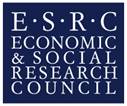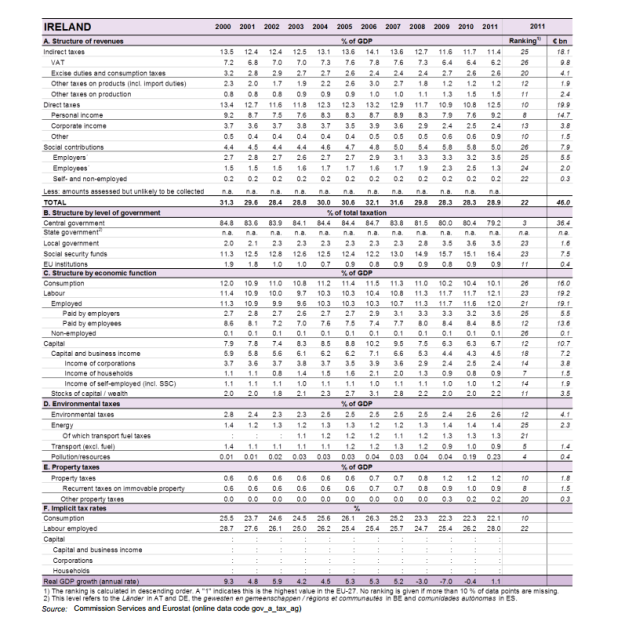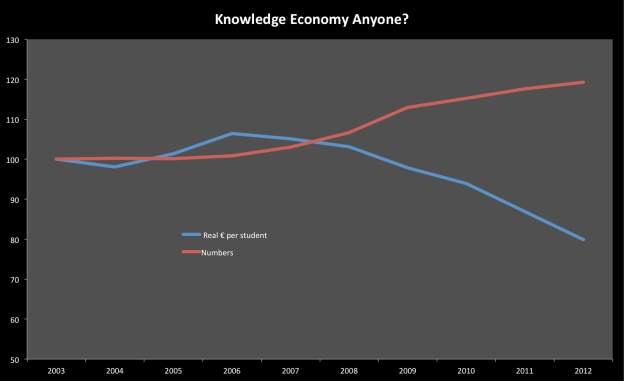|
Adam Smith Business School, University of Glasgow
|
|
AfDB
|
|
Aix-Marseille School of Economics
|
|
Aix-Marseille University
|
|
Asia University
|
|
Asian Development Bank
|
|
Asian Development Bank (ADB)
|
|
Athens University of Economics and Business
|
|
Athens University of Economics and Finance
|
|
Auburn University
|
|
Babson College
|
|
Baden-Wuerttemberg Cooperative State University
|
|
Banco Central do Brazil
|
|
Bangor Business School
|
|
Bangor University
|
|
Bank of Canada
|
|
Bank of England
|
|
Bank of Finland
|
|
Bank of Greece
|
|
Bank of Italy
|
|
Bank of Korea
|
|
Bank of Spain
|
|
Banque de France
|
|
Banque de France and Paris-Dauphine University
|
|
Bar Council of Ireland and Griffith College
|
|
BI Norwegian Business School
|
|
Bocconi University
|
|
Bocconi University, IGIER
|
|
Bogazici University
|
|
Bond University
|
|
Boston College
|
|
Boston University
|
|
Bournemouth University
|
|
Brandeis University
|
|
Brookings Institution
|
|
Brunel Univ
|
|
Brunel University
|
|
Business School, University of Swansea
|
|
Cambridge University
|
|
Cass Business School
|
|
Catholic University of Portugal
|
|
CEMLA
|
|
Center of Excellence SAFE
|
|
Central Bank of Chile
|
|
Central Bank of Colombia
|
|
Central Bank of Ireland
|
|
Central Bank of the Republic of Turkey
|
|
Centre d’Economie de la Sorbonne
|
|
Centre for European Policy Studies
|
|
Centre for Fiancial Econometrics, Deakin University
|
|
Centre National de la Recherche Scientifique (CNRS)
|
|
Charles University
|
|
Chinese Academy of Sciences
|
|
Chinese University of Hong Kong
|
|
Chosun university
|
|
Chung Yuan Christian University
|
|
City University of Hong Kong
|
|
Clemson University
|
|
CMBS Universitas Padjadjaran
|
|
Columbia University
|
|
Complutense University of Madrid
|
|
Connecticut College
|
|
Cornell University
|
|
Cranfield School of Management
|
|
CREATES, Aarhus University
|
|
CREI, Universitat Pompeu Fabra, and Barcelona GSE
|
|
Cyprus University of Technology
|
|
Czech National Bank
|
|
De Nederlandsche Bank
|
|
De Nederlandsche Bank (DNB)
|
|
Deakin University
|
|
Dept. of Economics
|
|
Deutsche Bank
|
|
Deutsche Bundesbank
|
|
Deutscher Bundestag
|
|
DIW
|
|
DIW Berlin
|
|
Dublin City University
|
|
EBRD
|
|
ECB
|
|
Ecole Polytechnique Federale de Lausanne
|
|
Edge Hill University
|
|
Erasmus School of Economics
|
|
ESAN University
|
|
ESC Pau
|
|
ESMT European School of Management and Technology
|
|
ESSEC Business School and THEMA-Universit de Cergy-Pontoise
|
|
Eurofidai CNRS
|
|
European Bank for Reconstruction and Development
|
|
European Central Bank
|
|
European University Institute
|
|
Ewha School of Business
|
|
Universidade do Porto
|
|
Universidade do Porto
|
|
Faculty of Business Economics in Kosice, University of Economics in Bratislava
|
|
Faculty of Economics & Business Universitas Padjadjaran
|
|
Faculty of Economics and Business, Universitas Padjajdjaran
|
|
Faculty of Economics, University of Ljubljana
|
|
Faculty of Management Sciences and Economic Of Sousse
|
|
Faculty of Management sciences and Economics of Sousse , Tunisia
|
|
Fairfield University
|
|
Federal Reserve Bank of Cleveland
|
|
Federal Reserve Bank of Cleveland; University of Kentucky
|
|
Federal Reserve Bank of St. Louis
|
|
Finnish Competition and Consumer Authority
|
|
Fordham University
|
|
Frankfurt School of Finance
|
|
Freie Universit Berlin
|
|
GC university Faisalabad
|
|
GCU
|
|
Georgetown University
|
|
German Development Institute
|
|
German Institute for Development Evaluation
|
|
Ghent University
|
|
Goethe University Frankfurt
|
|
Graduate Institute of International and Development Studies
|
|
Griffith University
|
|
Hans-Boeckler-Foundation
|
|
Harvard University
|
|
HEC Montreal
|
|
Helmut Schmidt University Hamburg
|
|
Heriot-Watt University
|
|
Higher School of Economics
|
|
Hosei University
|
|
Humboldt University at Berlin
|
|
IAE Aix en Provence and Greqam.
|
|
ICFAI University Tripura
|
|
IESEG School of Management – France
|
|
University of Carthage
|
|
University of Sousse
|
|
IIT Bombay
|
|
Imperial College London
|
|
INCEIF
|
|
Indian Institute of Technology Madras
|
|
Indian Institute of Technology, Kanpur
|
|
Indira Gandhi Institute of Development Research (IGIDR)
|
|
Indira Gandhi National Open University ,New Delhi
|
|
INSEAD
|
|
Insper Institute of Education and Research
|
|
Institut des Hautes Etudes Commerciales
|
|
Institute for Financial Research (SIFR) and Swedish House of Finance
|
|
Instituto UniversitÌio de Lisboa (ISCTE-IUL)
|
|
Inter-American Development Bank
|
|
International Institute for Self-governance
|
|
International Monetary Fund
|
|
Iowa State University
|
|
IPAG Business School & High Institute of Management of Tunis
|
|
Ipek University
|
|
Istanbul Technical University
|
|
ISTAT
|
|
Jaume I University
|
|
Joint Vienna Institute
|
|
Karlsruhe Institute of Technology
|
|
Keele University
|
|
Kiel Institute for the World Economy
|
|
King’s College London
|
|
Kingston Business School
|
|
Kookmin University
|
|
Korea University
|
|
Korea University Business School
|
|
KPMG USA
|
|
Kuliyah of Economics and Management Sciences (KENMS), International Islamic University Malaysia
|
|
LaTrobe
|
|
Lancaster University
|
|
Lancaster University Management School
|
|
Lancaster Universtiy
|
|
Larefi, University of Bordeaux
|
|
Lebanese American University
|
|
Leeds Metropolitan University
|
|
Lehigh University
|
|
Liverpool University
|
|
London School of Economics
|
|
Loyola University Maryland
|
|
Lucerne University of Applied Sciences
|
|
Maastricht University
|
|
Macquarie University
|
|
Miami University
|
|
Michigan State University
|
|
Middlesex University
|
|
Mohamed Seddik Benyahia University, Jijel
|
|
Monash University
|
|
Monastir University
|
|
Monterey Institute of International Studies
|
|
Moscow state University
|
|
National Dong Hwa University
|
|
National Taiwan University
|
|
Neoma Business School
|
|
New School for Social Research
|
|
New York University
|
|
New York University — Abu Dhabi
|
|
Northumbria University
|
|
NUS Business School
|
|
NUST Business School
|
|
OECD
|
|
Oesterreichische Nationalbank
|
|
Office of the Comptroller of the Currency
|
|
Ohio University
|
|
Open University of Cyprus
|
|
Osaka University
|
|
Oviedo University
|
|
Ozyegin University
|
|
Paris School of Economics and Paris 1 Pantheon-Sorbonne University
|
|
Paris-Dauphine University
|
|
Poznan University of Economics
|
|
Radford University
|
|
Renmin University of China
|
|
Rhodes College
|
|
Rutgers University and Cyprus University of Technology
|
|
RWI
|
|
RWTH Aachen University
|
|
Saint Leo University
|
|
Sapienza University of Rome
|
|
School of Management Fribourg
|
|
Seoul National University
|
|
Smurfit Business School, UCD
|
|
SOAS, University of London
|
|
Southwest University of Finance and Economics
|
|
Southwestern University of Finance and Economics
|
|
SPAINSIF
|
|
Stockholm University Business school
|
|
Suchon National University
|
|
Swiss National Bank
|
|
Swiss Re
|
|
T A Pai Management Institute
|
|
Tallinn University of Technology
|
|
Technische Universitaet Dresden
|
|
Technological Educational Institute of Crete
|
|
Terry College of Business, University of Georgia
|
|
Texas Tech University
|
|
Thammasat University
|
|
The Federal Reserve Bank of St. Louis
|
|
The University of Oklahoma
|
|
The University of Queensland
|
|
The University of Sydney Business School
|
|
The University of York
|
|
The World Bank
|
|
THEMA- Cergy-Pontoise
|
|
Tilburg University
|
|
Tor Vergata University
|
|
Trinity College Dublin
|
|
Trinity University
|
|
Tunisian Institute of Competitiveness and Quantitative Studies (ITCEQ)
|
|
UC Berkeley
|
|
UCD
|
|
UHA & EM Strasbourg (LaRGE)
|
|
UL
|
|
UniCredit
|
|
UniStra, EM Strasbourg (LaRGE)
|
|
Univeristy of Indiana
|
|
Univerity of Tasmania
|
|
Universidad Adolfo Iba̱ez
|
|
Universidad Carlos III de Madrid
|
|
Universidad Complutense de Madrid
|
|
Universidad de las Americas Puebla
|
|
Universidad de Santiago de Compostela, Spain
|
|
Universidad del Rosario
|
|
Universidad Politcnica de Cartagena
|
|
Universidade do Porto
|
|
Universidade Portucalense – Infante D. Henrique
|
|
Universita Politecnica delle Marche
|
|
Universitas Padjadjaran
|
|
Universitas Siswa Bangsa Internasional
|
|
Universitat Automa de Barcelona
|
|
Universitat Rovira i Virgili
|
|
Universite de Paris I – Panthon Sorbonne
|
|
Universite Lyon 2
|
|
Universite Paris Dauphine
|
|
Universite Rennes 1
|
|
Universite Bocconi
|
|
Universite Ca’ Foscari, Venezia
|
|
Universite Cattolica
|
|
Universite degli Studi di Milano/Bicocca
|
|
University Aboubekr BELAKAID of Tlemcen
|
|
University Center for Economic and Managerial Sciences, University of Guadalajara
|
|
University College Dublin
|
|
University College London
|
|
University of Essex
|
|
University Luigi Bocconi
|
|
University of Aberystwyth
|
|
University of Akron
|
|
University of Angers
|
|
University of Barcelona
|
|
University of Bath
|
|
University of Bayreuth
|
|
University of Beira Interior
|
|
University of Bern
|
|
University of Birmingham
|
|
University of Bremen
|
|
University of Bristol
|
|
University of Cagliari
|
|
University of California at Berkeley
|
|
University of California, Berkley
|
|
University of Cambridge
|
|
University of Canberra
|
|
University of Central Florida
|
|
University of Cologne
|
|
University of Colorado, Boulder
|
|
University of Cyprus
|
|
University of Delhi, South Campus
|
|
University of Duisburg
|
|
University of Duisburg-Essen
|
|
University of Duisburg-Essen/Kiel Institute for the World Economy
|
|
University of Economics and Law
|
|
University of Economics Ho Chi Minh City
|
|
University of Edinburgh
|
|
University of Essex
|
|
University of Evry Val d’Essonne
|
|
University of Florida
|
|
University of Geneva
|
|
University of Geneva and Swiss Finance Institute
|
|
University of Georgia
|
|
University of Giessen
|
|
University of Glasgow
|
|
University of Goettingen
|
|
University of Groningen
|
|
University of Guanajuato
|
|
University of Guelph
|
|
University of Hertforshire
|
|
University of Innsbruck
|
|
University of Kent
|
|
University of Las Palmas of Gran Canaria
|
|
University of Lille North of France
|
|
University of Lincoln
|
|
University of Linz
|
|
University of Liverpool
|
|
University of Luxembourg
|
|
University of Lyon GATE-LSE
|
|
University of Macau
|
|
University of Macedonia
|
|
University of Magdeburg, Halle Institute for Economic Research
|
|
University of Malays
|
|
University of Manchester
|
|
University of Maria Curie-Sklodowska University in Lublin
|
|
University of Massachusetts Dartmouth
|
|
University of Melbourne
|
|
University of Mississippi
|
|
University of Namur
|
|
University of Nottingham
|
|
University of Oklahoma
|
|
University of Oldenburg
|
|
University of Osnabruck
|
|
University of Oxford
|
|
University of Padua
|
|
University of Palermo
|
|
University of Patras
|
|
University of Pecs
|
|
University of Perugia
|
|
University of Porto
|
|
University of Portsmouth
|
|
University of Portsmouth, Portsmouth Business School
|
|
University of Queensland Business School
|
|
University of Regensburg
|
|
University of Rennes
|
|
University of Salamanca
|
|
University of Science and Technology Beijing
|
|
University of Seoul
|
|
University of South Australia
|
|
University of Southampton
|
|
University of St Andrews
|
|
University of Stirling
|
|
University of Strasbourg
|
|
University of Surrey
|
|
University of Sussex
|
|
University of Szeged
|
|
University of Tasmania
|
|
University of Technology, Sydney
|
|
University of Tunis
|
|
University of Virginia
|
|
University of Viterbo “La Tuscia”
|
|
University of Warsaw
|
|
University of Washington
|
|
University of Wellington
|
|
University of Western Sydney
|
|
University of Wisconsin-La Crosse
|
|
University Politehnica of Bucharest
|
|
University Rey Juan Carlos
|
|
UTS
|
|
Vrije Universiteit Brussel
|
|
VU University Amsterdam
|
|
Warsaw School of Economics
|
|
Waseda University
|
|
Waterford Institute of Technology
|
|
Westphalian Wilhelminian University of Munster
|
|
WHU – Otto Beisheim School of Management
|
|
Wichita State University
|
|
World Bank
|
|
http://www.buranvc.com
|
|
Xiamen University
|
| |
|
ZEW Mannheim
|






